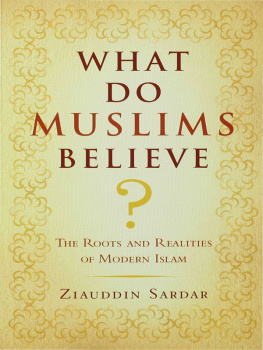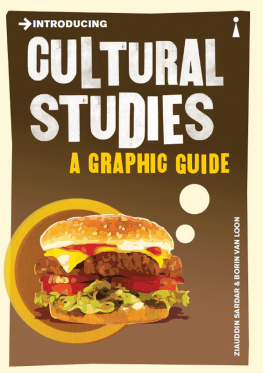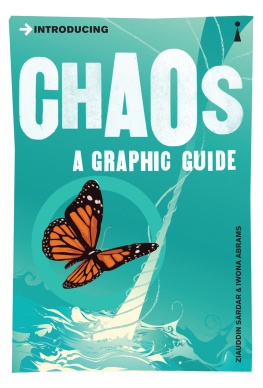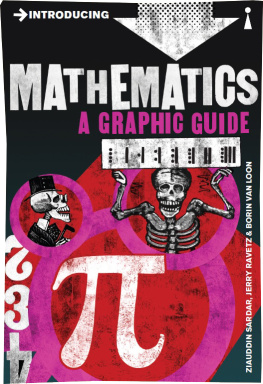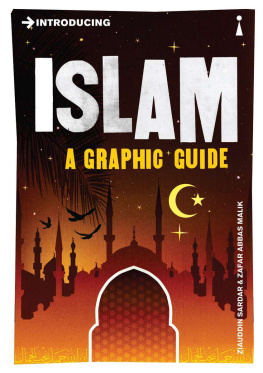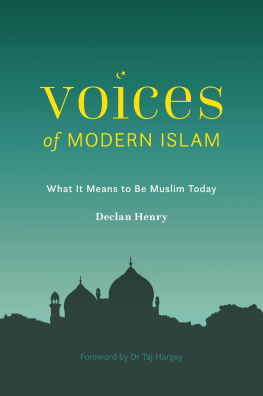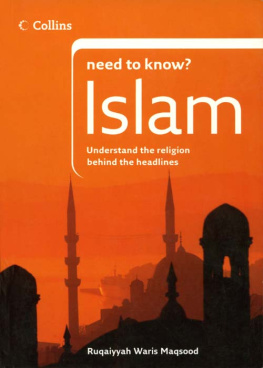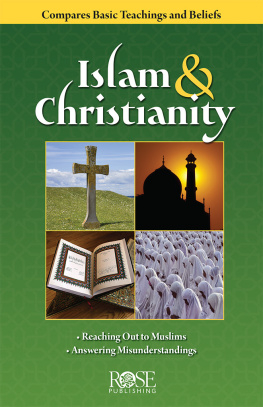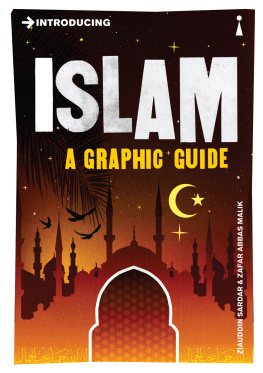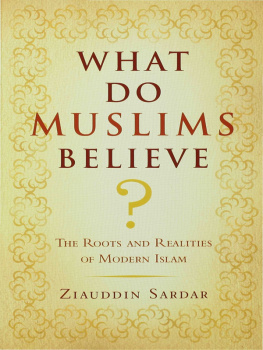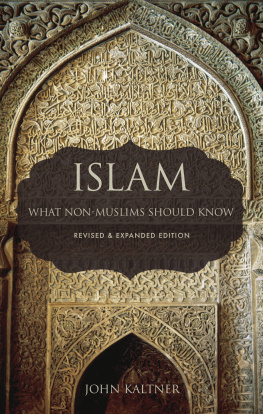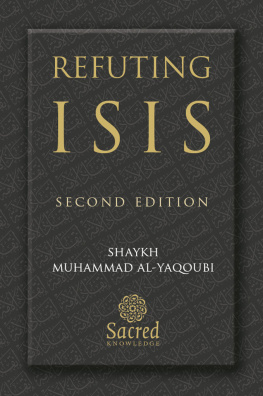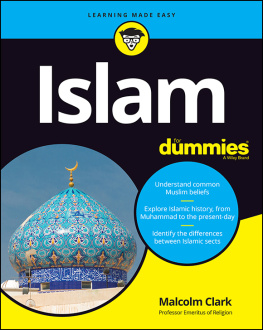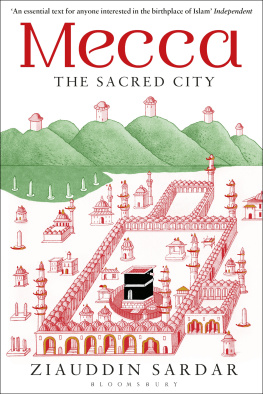Ziauddin Sardar is a writer, broadcaster and critical commentator on Islam, culture and science. Born in Pakistan and raised and educated in Britain, he is regarded as one of the world's leading public intellectuals. He is the editor of Futures, the monthly journal of policy, planning and futures studies, as well as co-editor of Third Text, the critical journal of the visual arts and culture. He is the author of over forty books on Islam, science policy, futures studies, post colonial and cultural studies, travel and autobiography. His books include the classic studies The Future of Muslim Civilization and Islamic Futures: TheShape of Ideas to Come, as well as explorations of contemporary US politics, Why Do People Hate America? and American Dream,Global Nightmare. His recent autobiography, Desperately SeekingParadise, offers an intellectual journey into what modernity means for Muslims. A columnist on the New Statesman, he is also widely known for his radio and television appearances.
Also available
What Do Jews Believe? Edward Kessler
What Do
MUSLIMS
Believe?
The Roots and Realities
of Modern Islam
Ziauddin Sardar

Copyright 2007 by Ziauddin Sadar
All rights reserved. No part of this book may be used or reproduced in any manner whatsoever without written permission from the publisher except in the case of brief quotations embodied in critical articles or reviews. For information address Walker & Company, 104 Fifth Avenue, New York, New York 10011.
Published by Walker Publishing Company, Inc., New York
Distributed to the trade by Holtzbrinck Publishers
All papers used by Walker & Company are natural, recyclable products made from wood grown in well-managed forests. The manufacturing processes conform to the environmental regulations of the country of origin.
LIBRARY OF CONGRESS CATALOGING-IN-PUBLICATION DATA HAS BEEN APPLIED FOR
eISBN: 978-0-802-71891-4
Visit Walker & Company's Web site at www.walkerbooks.com
First published in the United Kingdom by Granta Books in 2006
First U.S. Edition 2007
1 3 5 7 9 10 8 6 4 2
Typeset by M Rules
Printed in the United States of America by Quebecor World Fairfield
For my late father,
Salahuddin Khan Sardar:
he understood
Contents
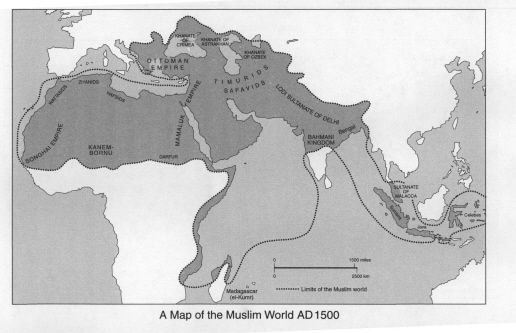
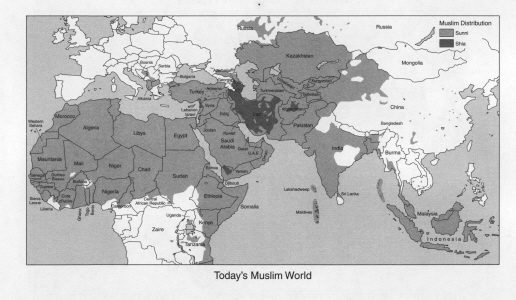
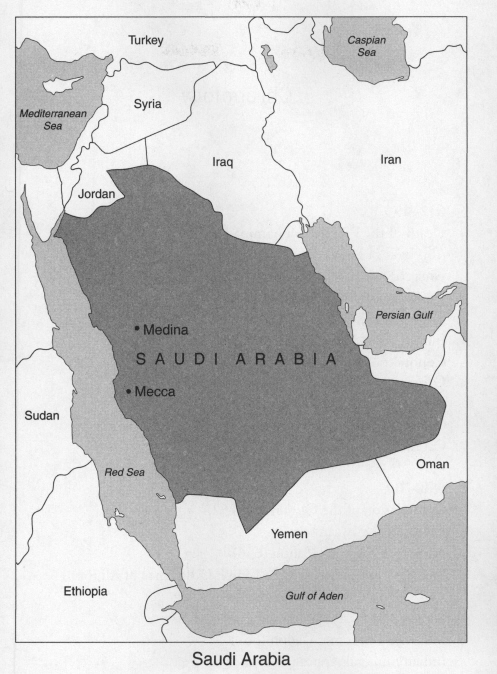
632-49 Death of the Prophet Muhammad (632)
Abu Bakr becomes First Caliph (632)
Umar becomes Second Caliph (634)
Expansion to Syria, Iraq and Persia
Capture of Jerusalem (638)
Introduction of the Hijra calendar
Conquest of Egypt
Othman becomes Third Caliph (644)
Expansion into the Maghrib
Creation of the Arab Navy
Capture of Cyprus
650-700
Compilation of the Qur'an (650-52)
Defeat of the Byzantines
Ali becomes Fourth Caliph (656)
Proclamation of Muawiya as Caliph in defiance of Ali (660)
Assassination of Caliph Ali (661)
Umayyad dynasty established in Damascus
Muawiya I becomes Caliph (661)
Indian numerals appear in Syria
Introduction of Arabic coinage
Yazid becomes Caliph (679)
The battle of Karbala and massacre of Hussain and his party (689)
701-50
Invasion of Spain (711)
Expansion of Muslims into the Indus valley
Crossing of Muslims into France (718)
Battle of Tours (732)
Umayyad dynasty ends (749)
751-800
Introduction of the paper industry to the Arab world
The publishing industry established as a sophisticated enterprise
The great compilers of hadith publish their works: al-Bukhari,
Muslim, Abu Dawood, al-Tirmidhi, ibn Maja and al-Nasai
Abbasid dynasty founded
Al-Saffar becomes Caliph
Spanish Umayyads established in Crdoba (756)
Beginning of the Mutazilite philosophy (757)
Foundation of Baghdad (762)
Ibn Ishaq publishes the famous biography of the Prophet Muhammad
Death of Imam Hanifa
Charlemagne's invasion of Spain; death of Roland (778)
Great Mosque of Cordoba founded; Harun al-Rashid becomes Caliph (786)
Idrisids are established in Morocco (788)
Islamic jurisprudence (fiqh) codified with four 'Schools of Thought' established
801-50
Ibn Hisham publishes his biography of the Prophet Muhammad Philosopher al-Kindi established as the first Muslim philosopher The first public hospital established in Baghdad (809)
Jabir ibn Hayan establishes chemistry as an experimental science Imam Shafi'i dies (820)
Sicily conquered (827)
Al-Khwarizmi publishes Algebra
Bait al-Hikmah (House of Wisdom), public library, is founded in Baghdad (832)
The translations of the works of Greece, Babylonia, Syria, Persia, India and Egypt reach their peak
The Mutazilite (Rational) School of Philosophy founded
Thousand and One Nights makes an early appearance
851-900
Al-Jahiz, the goggle-eyed', publishes The Book of Animals
Philosopher al-Farabi publishes The Perfect State
Hunyan ibn Ishaq, the renowned translator, publishes
translation of Greek philosophy and other works
Mosque of ibn Tulun built in Cairo (878)
The Ulama established as a major force against the state
Philosopher al-Razi declares that functions of the human body are based on complex chemical interactions
Musa Brothers publish their book of mechanical devices
Al-Battani publishes On the Science of Stars
Al-Fargani publishes his Elements of Astronomy
901-50
Death of Thabit ibn Qurrah, mathematician, philosopher Historian al-Tabari, poet al-Mutanabbi born (915)
Death of Al-Hallaj (922)
Al-Razi publishes first book on smallpox and measles
Poet Firdawsi born (934)
Mathematician Abu al-Wafa born (940)
951-1000
Al-Haytham publishes Optics, containing the basic formulae of reflection and refraction
Fatimid dynasty established in Egypt (966)
Al-Azhar mosque built in Cairo (970)
Al-Baruni publishes India and The Determination of theCoordinates of the Cities
Poet al-Maarri born (973)
Ghaznavid dynasty established in Afghanistan and northern India (977)
Philosopher and physician ibn Sina publishes Canons ofMedicine, the standard text for the next eight hundred years; and many philosophic works
The publication of Fihirst al-Nadim, the catalogue of books contained in the bookshop of al-Nadim (987)
Al-Azhar University, the first in the world, established in Cairo (988)
The Ghurids succeed the Ghaznavids in Afghanistan and northern India
Humanist al-Masudi lays the foundation of human geography
1001-1100
Statesman, educator Nizam al-Mulk born
Poet Umar Khayyam solves equations of three degrees
Theologian, thinker al-Ghazzali publishes The Revival of
Next page
